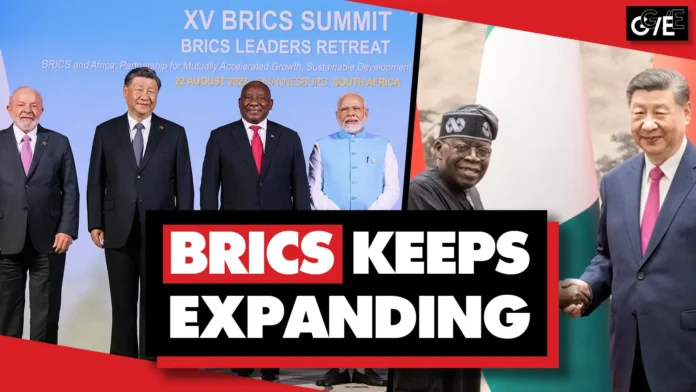Enterprise Issues
With Siaka Momoh
By Mthuli Ncube guest of Enterprise Issues today. Mthuli Ncube is the Finance Minister in the Zimbabwe cabinet appointed by President Emmerson Mnangagwa and past Chief Economist and Vice President of the African Development Bank. He holds a PhD in Mathematical Finance from Cambridge University. This piece is sourced from Archives Siaka-Momoh.
Unlocking potential for cooperation
The fifth meeting of the BRICS countries (Brazil, Russia, India, China and South Africa) held in Durban, South Africa, from March 26 to 27, 2013, was seen as an opportunity for Africa to strengthen its ties with these major emerging economies. The theme of the summit was “BRICS and Africa – partnerships for integration and industrialization” with the goal to unlock potential for cooperation between the BRICS and Africa.
Huge potential
In fact, Africa has demonstrated huge potential in terms of economic development prospects, abundant natural resources, growing consumer power and favourable demographics. The emergence of the BRICS as major global players has raised hope that a win-win partnership could foster the development of the continent.
In recent years, the BRICS have expanded their involvement in Africa. Their share in foreign direct investment (FDI) inflows and trade volume has surged rapidly. For instance, trade volume between China and Africa increased from US $10 billion in 2000 to US $190 billion in 2012. The partnership between India and Africa, for instance, has significantly promoted the development of small- and medium-scale enterprises on the continent. Meanwhile, Brazil and Russia have been heavily involved in the mining and energy industry in Africa through public-private partnerships.
BRICS engagement with Africa
The BRICS are now Africa’s largest trading partners with trade expected to reach more than US $500 billion by 2015, with 60 per cent from China. The BRICS are also becoming significant investors in Africa, especially in the manufacturing and service sectors. With respect to foreign direct investment, BRICS countries have strengthened their presence on the continent compared with traditional partners, such as the U.S. and Europe. In 2010, for example, the BRICS’ share in FDI inward stock and FDI inflows to Africa reached 14 per cent and 25 per cent, respectively. The share of BRICS countries in the total value of African greenfield projects reached 25 per cent in 2012 compared with 19 per cent in 2003. Trade between the BRICS and Africa rose to as much as US $340 billion in 2012 –10 times higher than the value recorded in 2002 . Currently, the BRICS trade more with Africa than they do among themselves.
Main motivations of the BRICS countries’ engagement in Africa
The reasons behind BRICS countries’ involvement in Africa include their appetite for the continent’s natural resources, Africa’s large and untapped agricultural sector as well as the opportunity for investments and transfer of technology and knowledge targeting the growing middle class which is estimated to include more than 300 million people.



